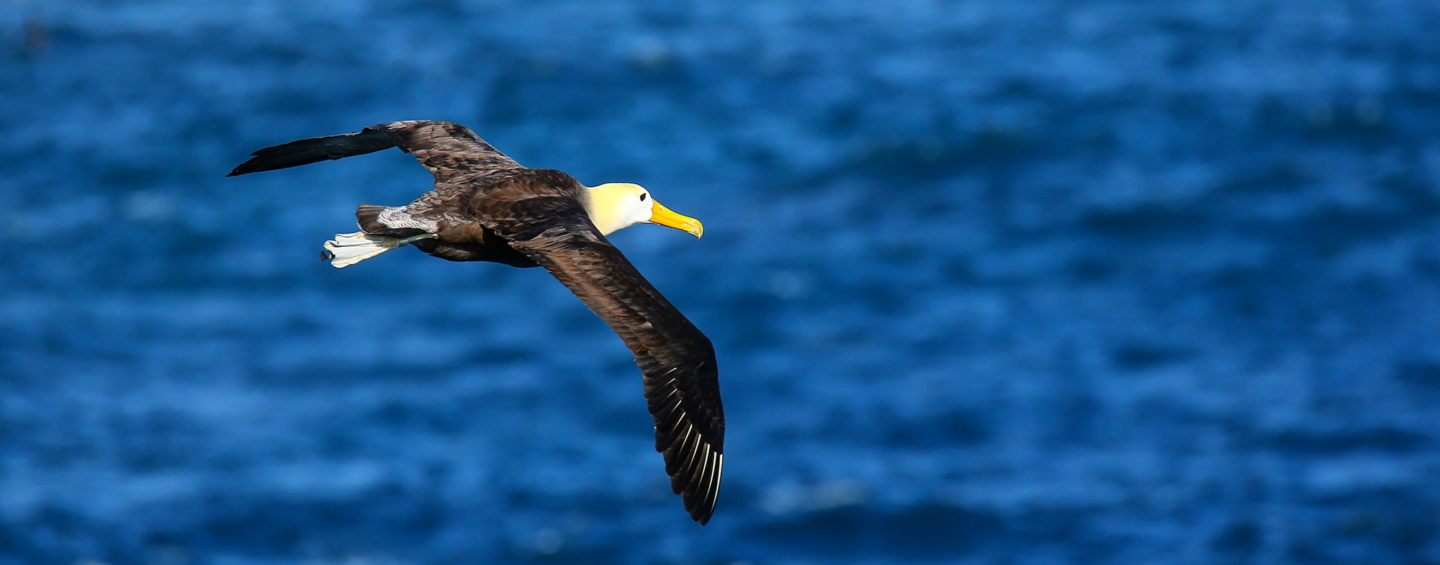On World Oceans Day, I want to celebrate the leadership of major retailers and seafood companies in protecting ocean wildlife around the world.
Early in my career at SFP, I worked on a fishery improvement project (FIP) in the Florida pink shrimp fishery. It was an effort driven by Publix Super Markets and its supplier Cox Seafood to ensure the proper installation of TEDs (turtle excluder devices) and improve understanding of fishing’s impacts on sea turtles in the Gulf of Mexico.
This project was focused on protecting one specific species in one specific fishery, exemplifying the power of collaboration between suppliers and retailers to improve sustainability. Flash forward to today, and some of the biggest retailers and seafood companies are applying these same strategies to their global seafood supply chains.
Capitalizing on this momentum in the seafood industry, SFP launched our Protecting Ocean Wildlife initiative in 2020, to address the continued bycatch of sharks, sea turtles and marine mammals in commercial fisheries. Our work helps industry understand the threats and identify where and how they should focus their efforts to reduce bycatch.
Our goal has always been to have the seafood industry lead sustainability efforts, including protecting ocean wildlife. And I’m proud to say that SFP’s partners were up for the challenge.
Asda was the first company to participate in an “ETP bycatch audit” back in 2020. The audits use data from existing SFP tools, such as our Seafood Metrics platform, to identify fisheries with the highest risk to endangered, threatened, and protected (ETP) marine wildlife species. Audit results are published on the Ocean Disclosure Project site, a public platform for companies to voluntarily disclose their seafood sourcing. SFP conducts these audits in partnership with BirdLife International and Whale and Dolphin Conservation.
At the time, Chris Brown, senior director for sustainable supply chains at Asda, expressed the hope that Asda’s leadership would motivate other companies to take similar action.
And that it did.
Since then, some of the largest retailers in the US and UK, including Tesco, Co-op, Publix Super Markets, and several others, have participated in audits, and more are underway.
In addition to retailers, the world’s largest seafood company, Thai Union Group, completed a bycatch audit in March 2023. Already a leader in the space, with a commitment to 100% electronic monitoring in its tuna supply chains, Thai Union did an even deeper dive with the bycatch audit, digging into tuna fisheries that were identified as high risk. We also worked with Key Traceability Ltd. to complete an additional audit of the tuna vessels participating in the fishery improvement projects (FIPs) that Thai Union supports, to see if they were utilizing best practice fishing techniques to reduce bycatch.
Building on this work, Thai Union became the first company to sign SFP’s Protecting Ocean Wildlife Pledge, in April at Seafood Expo Global in Barcelona. Companies taking the Pledge commit to do their part to reduce bycatch of vulnerable marine wildlife in commercial fisheries.
Thai Union is urging other companies to join in their commitment. I’m proud to share that, as of yesterday, Beaver Street Fisheries and Giant Eagle, Inc. have also signed the pledge. These companies are leading the industry with actionable steps to protect and restore endangered marine life.
While there are existing, proven techniques to reduce bycatch, changing fishing practices and adopting electronic monitoring can be expensive and time-consuming. Bycatch mitigation implementation can involve installation of new equipment, training programs, and many hours at sea to perfect new fishing practices. Additionally, it is challenging for businesses to know where to start if they want to support projects and purchase alternative gear.
Our longtime partner Purina Europe shared our concern about this challenge and sought a way to kickstart action in the seafood industry. Earlier this year, the company became the founding sponsor of SFP’s Bycatch Solutions Hub, an online resource that supports industry-led efforts to reduce bycatch. The Hub connects seafood retailers and businesses that want to financially support projects to reduce ocean wildlife bycatch with organizations capable of implementing in-the-water solutions.
A great example of this synergy between retailers and innovators is today’s announcement by Publix Super Markets that it is donating funds to support gear innovation and the adoption of electronic monitoring in fisheries that were identified as high risk in its bycatch audit. Publix has been a longtime partner of SFP and a true leader and collaborator in our efforts, going all the way back to that pink shrimp FIP.
I’m celebrating these efforts today, and am excited to see what the future holds, as more companies begin taking steps within their supply chains to protect ocean wildlife. Protecting ocean wildlife is not just good for fisheries, it’s also good for business.
I urge all members of the seafood industry to look at the Protecting Ocean Wildlife Pledge and reach out to me if you want to join with other industry leaders to reduce the worldwide bycatch of ocean wildlife and maintain healthy and abundant oceans for generations to come.

